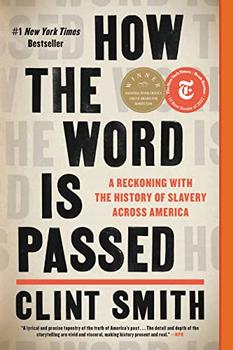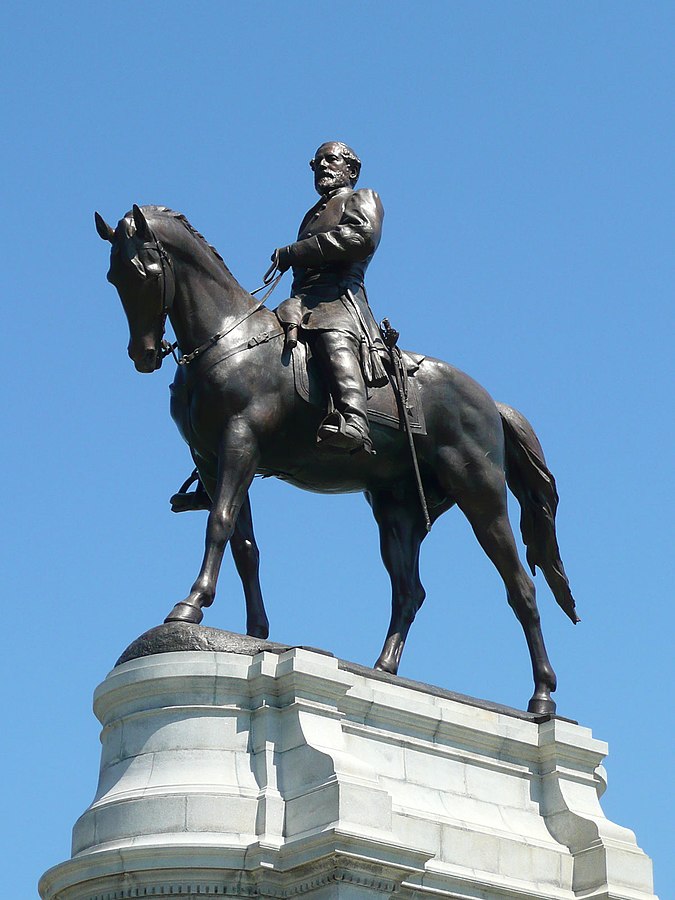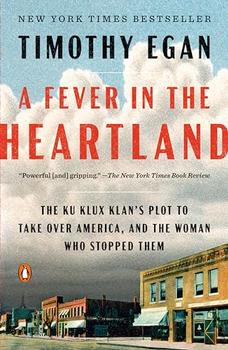Summary | Excerpt | Reading Guide | Reviews | Beyond the book | Read-Alikes | Genres & Themes | Author Bio

A Reckoning with the History of Slavery Across America
by Clint SmithThe Atlantic staff writer and poet Clint Smith's revealing, contemporary portrait of America as a slave owning nation.
Beginning in his hometown of New Orleans, Clint Smith leads the reader on an unforgettable tour of monuments and landmarks—those that are honest about the past and those that are not—that offer an intergenerational story of how slavery has been central in shaping our nation's collective history, and ourselves.
It is the story of the Monticello Plantation in Virginia, the estate where Thomas Jefferson wrote letters espousing the urgent need for liberty while enslaving more than four hundred people. It is the story of the Whitney Plantation, one of the only former plantations devoted to preserving the experience of the enslaved people whose lives and work sustained it. It is the story of Angola, a former plantation–turned–maximum-security prison in Louisiana that is filled with Black men who work across the 18,000-acre land for virtually no pay. And it is the story of Blandford Cemetery, the final resting place of tens of thousands of Confederate soldiers.
A deeply researched and transporting exploration of the legacy of slavery and its imprint on centuries of American history, How the Word Is Passed illustrates how some of our country's most essential stories are hidden in plain view—whether in places we might drive by on our way to work, holidays such as Juneteenth, or entire neighborhoods like downtown Manhattan, where the brutal history of the trade in enslaved men, women, and children has been deeply imprinted.
Informed by scholarship and brought to life by the story of people living today, Smith's debut work of nonfiction is a landmark of reflection and insight that offers a new understanding of the hopeful role that memory and history can play in making sense of our country and how it has come to be.
The publisher is unable to provide an excerpt of this book.
This book's strengths are many, including Smith's mellifluous language and his ability to crystallize the meaning of white supremacy and its effects for Black Americans. The connections he draws both spatially and temporally between the actual lived horrors of slavery and the world as we know it today are both brilliant and vital, as is his emphasis on education and how the teaching of the past is really a reflection of current attitudes, fears and prejudices. How the Word Is Passed should be required reading for white Americans to gain a fuller understanding of what slavery meant and how its legacy permeates the world in a way they may not see or understand...continued
Full Review
(992 words)
This review is available to non-members for a limited time. For full access,
become a member today.
(Reviewed by Rose Rankin).
 Annette Gordon-Reed, Carl M. Loeb University Professor at Harvard and Pulitzer prize-winning author of The Hemingses of Monticello
A beautifully written, evocative, and timely meditation on the way slavery is commemorated in the United States.
Annette Gordon-Reed, Carl M. Loeb University Professor at Harvard and Pulitzer prize-winning author of The Hemingses of Monticello
A beautifully written, evocative, and timely meditation on the way slavery is commemorated in the United States. Ibram X. Kendi, National Book Award-winning and #1 New York Times bestselling author of How to Be an Anti-Racist and Stamped from the Beginning
Clint Smith chronicles in vivid and meditative prose his travels to historical sites that are truth-telling or deceiving visitors about slavery. Humans enslaved Black people, and then too often enslaved history. But How the Word Is Passed frees history, frees humanity to reckon honestly with the legacy of slavery. We need this book.
Ibram X. Kendi, National Book Award-winning and #1 New York Times bestselling author of How to Be an Anti-Racist and Stamped from the Beginning
Clint Smith chronicles in vivid and meditative prose his travels to historical sites that are truth-telling or deceiving visitors about slavery. Humans enslaved Black people, and then too often enslaved history. But How the Word Is Passed frees history, frees humanity to reckon honestly with the legacy of slavery. We need this book. Matthew Desmond, Maurice P. During Professor of Sociology and Pulitzer prize winning author of Evicted
A work of moral force and humility, How the Word Is Passed offers a compelling account of the history and memory of slavery in America. Writing from Confederate Army cemeteries, former plantations, modern-day prisons, and other historical sites, Clint Smith moves seamlessly between past and present, revealing how slavery is remembered and misremembered—and why it matters. Engaging and wise, this book combines history and reportage, poem and memoir. It is a deep lesson and a reckoning.
Matthew Desmond, Maurice P. During Professor of Sociology and Pulitzer prize winning author of Evicted
A work of moral force and humility, How the Word Is Passed offers a compelling account of the history and memory of slavery in America. Writing from Confederate Army cemeteries, former plantations, modern-day prisons, and other historical sites, Clint Smith moves seamlessly between past and present, revealing how slavery is remembered and misremembered—and why it matters. Engaging and wise, this book combines history and reportage, poem and memoir. It is a deep lesson and a reckoning. Following defeat and widespread destruction in the Civil War, people in the former Confederate states set about rebuilding their communities and coping with the enormity of their loss. This effort included physical and psychological measures, such as building cemetery monuments and establishing Confederate Memorial Day to honor fallen soldiers. It also involved the rationalization of defeat in the war, which began taking shape almost immediately following Lee's surrender at Appomattox.
Following defeat and widespread destruction in the Civil War, people in the former Confederate states set about rebuilding their communities and coping with the enormity of their loss. This effort included physical and psychological measures, such as building cemetery monuments and establishing Confederate Memorial Day to honor fallen soldiers. It also involved the rationalization of defeat in the war, which began taking shape almost immediately following Lee's surrender at Appomattox.
First described by the editor of the Richmond Examiner in 1867, the "Lost Cause" myth claimed that slavery was not the issue that drove the conflict, but rather that the South was the victim of Northern aggression and only lost the war because of the ...
This "beyond the book" feature is available to non-members for a limited time. Join today for full access.

If you liked How the Word Is Passed, try these:

by Timothy Egan
Published 2024
A historical thriller by the Pulitzer and National Book Award-winning author that tells the riveting story of the Klan's rise to power in the 1920s, the cunning con man who drove that rise, and the woman who stopped them.

by Carvell Wallace
Published 2024
A transformative memoir that reimagines the conventions of love and posits a radical vision for healing.





